Imported Goods: Samples tampered for dodging tax
Lack of due diligence by the customs authorities in Chattogram has resulted in samples of imported goods allegedly being tampered with before testing to dodge taxes.
The alleged tampering is taking place while collecting, sealing, and transporting samples to laboratories and taxation sections, which is leading to loss in revenues. No data on the amount is available.
Chattogram Customs House (CCH) mandates that samples of more than 1,000 chemicals and classified goods, out of a total of 4,881 goods that are imported, must be sent to labs to check for false declarations and prevent entry of prohibited goods into the country.
Samples of the rest must be sent to the CCH officials assigned for assessment. In the case of heavy and fragile goods, CCH officials must be provided with pictures of the goods for inspection.
Accusations, however, run rampant that samples are changed on the way.
Officials have long engaged the representatives of importers and outsiders (working without any appointment at CCH) in the task, due to inadequate manpower.
The representatives and outsiders, who collect and carry the samples to the laboratory and receive the lab reports in absence of the official responsible for taxation, change the samples en route, said CCH officials.
In an instance of such tampering, Dhaka-based importer MS Sadia Center brought sewing machines from Singapore last December, and got clearance based on the sample report. But after officials seized the consignment on a tip-off, they found cosmetics in the containers.
Based on the initial sample report, officials estimated a duty of Tk 5 lakh but after physical examination, it was seen that the tax for the actual goods amounted to Tk 1.84 crore. The importer later admitted to the “mistake” and paid the higher tax to release the goods from the port.
According to CCH officials, Customs Intelligence and Investigation Directory (CIID), Audit, Investigation and Research (AIR) unit of the CCH and other agencies found sample forgery several times, but the authorities remain indifferent.
The Jetty, Un-stuffing and AIR sections filed cases in connection with 1,090 consignments for revenue forgery last year. As per case records, goods worth more than the declaration, import of prohibited goods, empty containers and non-declared goods were unearthed.
Most of these consignments were awaiting release after clearance from the labs and taxation sections. The importers later paid the higher tax amounts and had the goods released.
The National Board of Revenue (NBR) and the CIID had issued several letters with brief reports to the authorities, drawing attention to the risk of the entry of prohibited goods due to irregularities in sample collection.
When contacted, Prakash Dewan, a member of the National Board of Revenue, said he was unaware of the shortage in manpower. He said assigning representatives of the importers or an outsider for such a task was completely illegal.
LAB RESULTS BEING QUESTIONED
Customs officials said they get different results from different labs based on samples of the same shipment.
For instance, an importer brought industrial salt with a declaration of having 99 percent Sodium Sulphate in October, which has a tax rate of around 10 percent.
But the lab results showed that it was edible salt with 24 percent sodium chloride, which has a tax of around 86 percent.
As the importer appealed for a re-test, the sample was again sent to labs in Dhaka University and Bangladesh Council of Scientific and Industrial Research (BCSIR). The lab said it was edible salt with 55 percent sodium chloride, while the BCSIR said it was industrial salt with 0.88 percent sodium chloride.
The importer later declared the goods to be edible salt and had the consignment released by paying the higher tax amount.
Sadhan Kumar Kundha, joint commissioner of CCH, said he was aware of discrepancies in reports from different labs for the same sample.
“We don't know the reason behind it. It can be because the samples were changed or the quality deteriorated when the goods were transported or for other reasons.
“Some employees were assigned to collect and transfer the samples from the jetty to laboratories and taxation sections. Sometime the representatives of importers do this task for getting quick service. But all samples have a plastic lock with serial numbers; therefore it's not possible to change the sample,” added Kumar, also head of Jetty Customs and Sample section.
During a visit to the Customs laboratory, all samples were seen to be collected by representatives of importers. They were, however, using plastic shopping bags which were stitched at the bottom, making it easy to make a switch.
Md Moin, driver of lab in-charge there, was seen testing the sample in front of the importer's representative, although no outsider is allowed there.
“Results of the same sample can be dissimilar due to different causes,” said H M Murshed, Scientific Officer of BCSIR Chattogram office.
He told The Daily Star that quality of machineries and supporting chemicals used in different labs were not same, making the men behind the machine the most important to get accurate result.
Depending on the item, samples are sent to different labs, including CCH Chemical Laboratory, Department of Fisheries, Dhaka University, BCSIR, Bangladesh University of Engineering and Technology, Chittagong University of Engineering and Technology and Chittagong Veterinary and Animal Sciences University.
Kazi Mostafizur Rahman, commissioner of CCH, said anomalies were taking place, as they often cannot follow rules due to a shortage of manpower and transportation facilities.
“There is no alternative to employing our own manpower to get accurate lab results.”
The varying results also pose a problem for importers, often causing delays.
Mahadi Hasan, a chemical importer, said that importers were suffering due to dissimilar results from different labs and it increased their time and cost.
He added that sample transportation and examination costs were borne by the importer and the amount was between Tk 15,000 to Tk 40,000.

 For all latest news, follow The Daily Star's Google News channel.
For all latest news, follow The Daily Star's Google News channel. 

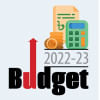
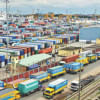
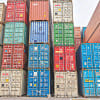
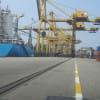
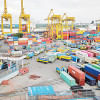


Comments